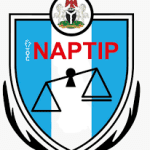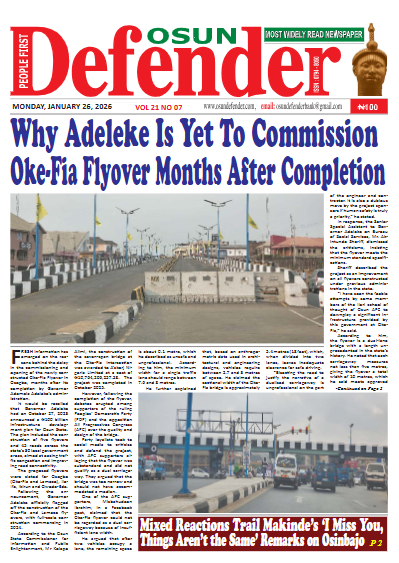NAPTIP Declares South-East Highest In Human Trafficking

The Director General (DG) of the National Agency for the Prohibition of Trafficking in Persons (NAPTIP), Fatima Waziri-Azi, has said the South East ranks among the regions with the highest human trafficking infractions in the country.
She said this on Monday at the opening of a one-day workshop organised in Enugu by the International Centre for Migration Policy Development (ICMPD) in partnership with NAPTIP.
Ms. Waziri-Azi, represented by the agency’s director of research and programme development, Josiah Emerole, said the workshop’s essence was to validate the report on the baseline carried out by NAPTIP and ICMPD for the advocacy project.
The ICMPD is an inter-governmental organisation headquartered in Vienna, Austria, with 20 member states.
She said the project was carried out in the five states of Enugu, Edo, Delta, Benue, and Ogun. Ms Waziri-Azi said Enugu was chosen as one of the pilot states because of the high rate of human trafficking in the zone.
The NAPTIP boss described human trafficking as the second major crime in the world but regretted that “Nigerians see it as a minor crime.”
She stressed that the fight against human trafficking is a collaborative one because anybody can be trafficked, both young and adult, in the name of making money.
The NAPTIP boss urged people to take the campaign to their various communities for effective sensitisation.
In an opening remark, Mojisola Sodeinde, head of the West Africa Region of ICMPD, said over 75 percent of trafficked victims in Africa were minors.
Ms Sodeinde, represented by ICMPD’s project coordinator, Rhoda Dia-Johnson, said, “Our collective goal is to embed a strong educational framework within our schools that will not only inform and protect our students but also empower them to be vigilant guardians of their futures.”
According to Ms Sodeinde, ICMPD promotes innovative, comprehensive and sustainable migration policies to harmonise and make migration management more efficient.
“ICMPD does this by using a holistic three-pillar approach – research, capacity building and migration dialogues, funded by the European Union under the framework of the project Support to free movement of persons and migration in West Africa (FMM),” she said.
Ms Sodeinde said the FMM West Africa project is co-funded by the European Union and ECOWAS and is being implemented by IOM, ICMPD and ILO.
“Within this context, ICMPD supports NAPTIP to strengthen the agency’s capacity in training and public education,” she said.
She said ICMPD and NAPTIP recently collaborated with the National Commission for Colleges of Education to infuse trafficking concepts into teacher training curricula for NCE teachers and update the NCE minimum standards to include awareness of trafficking issues.
“Today, we embark on a crucial journey starting with the selection of 50 schools in Enugu that will become the pillars of our project, where young minds will be nurtured to recognise, resist, and report the dangers of human trafficking.
“Our activities will include in-depth discussions and collaborations to finalise the schools’ selection and review and validate our baseline report,” Ms Sodeinde said.
Also contributing, the Commissioner for Education in Enugu State, Leonard Mbah, represented by his permanent secretary, Patrick Ochi, promised to take the sensitisation to secondary schools, where clubs would be formed to educate students on the dangers of the crime.
(NAN)

Hafsoh Isiaq is a graduate of Linguistics. An avid writer committed to creative, high-quality research and news reportage. She has considerable experience in writing and reporting across a variety of platforms including print and online.









